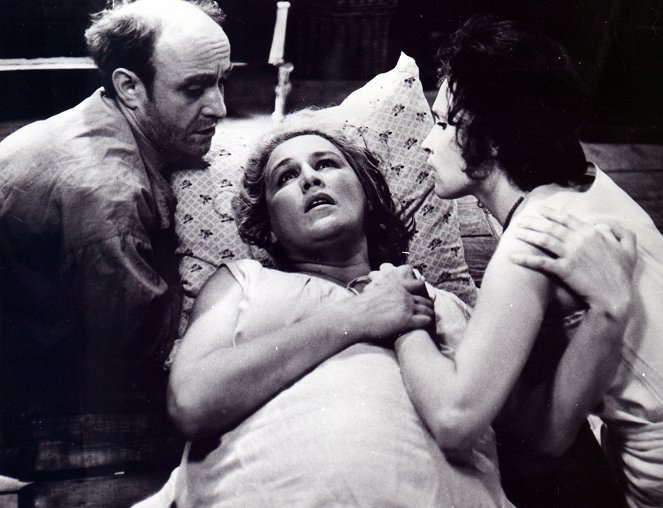Arvostelut (3)
The Soviets once again demonstrated why they were so good at war movies. Not because they made so many of them that were beholden to the regime, but because they also made ones that were out of line, that were critical of war, and of people who dumbly follow the mechanism of the war machine. A wonderful example of psychological war drama with breathtaking images.
()
In the Soviet film industry, courage was a scarce commodity, and only a few dared to cross taboos and attack sacred symbols of the system. The risk often lay in the mere unconventionality in handling an allowed subject. For Alexandr Askoldov, The Commissar meant a feature debut and at the same time an immediate end to his career. At the closed premiere, the film frightened and enraged party officials and censors to such an extent that they did not want to put it in the safe as usual, but rather immediately burn it. Its significance and fate can be compared to the film The Ear within Czechoslovak cinema, with the difference being that Kachyňa was able to "make up" for his guilt and was forgiven by the system. The Commissar became such an indigestible symbol of "betrayal" in Soviet cinema that it became part of the last titles released for distribution during the perestroika period. Before that, audiences could watch, for example, Repentance, the transparent allegory on Stalinism by Tengiz Abuladze. It is paradoxical that the categorical rejection by the party representatives was actually caused by a positive shift in the thinking of Soviet society. In the height of Stalinism in the late 1930s, the film would have faced rejection for its depiction of Jewish culture and reminders of anti-Jewish pogroms, as well as the presence of strong religious belief of the Jewish craftsman. On the other hand, the regime would have been impressed by the uncompromising nature and toughness of the commissar, her fanatical zeal for the goals of the revolution, and the prioritization of ideology over personal life. Her final decision, which appears inhuman in the 1960s, would probably have been accepted by contemporary critics as an act worthy of a true revolutionary. Askoldov was probably inspired by the fate of Rozaliya Zemlyachka, who served as a commissar in the Bolshevik 13th Army during the Civil War and purged Crimea of the Whites. Among other things, she infamously became known for the execution of approximately 7,000 prisoners of the defeated Wrangel's Army at the end of 1920. There aren't many films worth revisiting from the Soviet era, but Askoldov's piece is definitely one of them. Overall impression: 90%.
()
A young female member of the Red Army is pregnant and gives up her revolutionary ideals. A Jewish family gives her shelter and help. The final prophetic vision of the Holocaust is chilling. An artistically and substantively impressive work.
()
Kuvagalleria (4)
Kuva © Mosfilm


Mainos